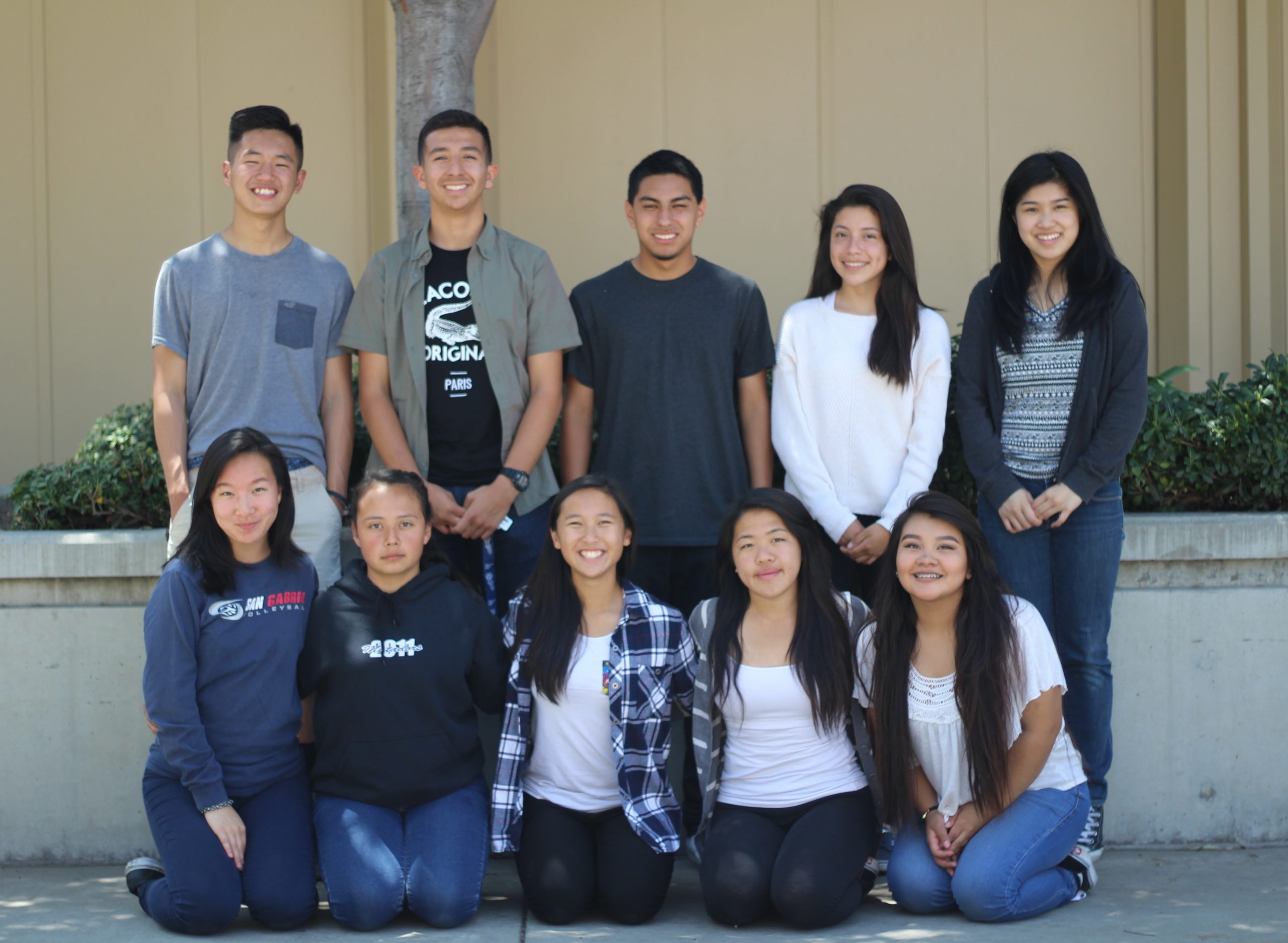
Photo by Sunny Chen
Peer Assistants transition from Peer Counseling
After an application and interview process narrowed the number of applicants from nearly twenty to just 10, the new Peer Assistants have been revealed to be sophomore Xochitl Flores and juniors Kylie Tran, Kelly Tam, Ivy San, April Vuong, Jose Lozano, Jennifer Gomez, Hector Hernandez, Samson Tran, and Azucena Pacheco.
Peer Counseling is a course that trains students to provide a listening ear to their peers and ask questions in an attempt to help them figure out a solution on their own. In order to become a Peer Assistant, students must have completed both Peer Counseling
½ and ¾ courses. After that, each aspiring Assistant needs to fill out an application and go through an interview process in order to be considered for the position.
“The interview process I think is the most nerveracking part, but other than that, it’s pretty easy,” Gomez said. “It’s not so much pressure; you just gotta believe in yourself.”
The application asks for the strengths and weaknesses of each applicant, including a portion in which they must evaluate themselves on certain characteristics, such as honesty, from a scale of 1-5. In addition, the applicant must reflect upon what they learned and liked during their past two years in Peer Counseling.
“At first, I was like I guess I’ll just do [Peer Counseling] for a year and not continue it,” Samson Tran said, “but after my first year of Peer, I really, really fell in love with getting the satisfaction of helping people.”
Although Peer Counseling helps a person overcome conflicts, a Peer Assistant’s aim is not to come up with solutions for the person. Rather, the Assistant asks questions, listens, and encourages the person to voice their thoughts and gradually come up with a solution on their own. In addition to helping students solve their problems, Peer Counseling helps develop an Assistant’s communicative skills on a daily basis by teaching them to ask more open-ended questions when conversing with other people, whether it be for lighthearted or serious purposes.
“When you talk to a student there’s always a better way of listening or reflecting or asking questions, and there’s going to be a wide variety of different issues that my students and peer assistants will see,” counselor Solinet Wong said. “What I want for [the Peer Assistants] to gain most is confidence when they talk to students.”
As these students transition from being counselors to assistants, they take on new responsibilities that will provide for both their peers and themselves.